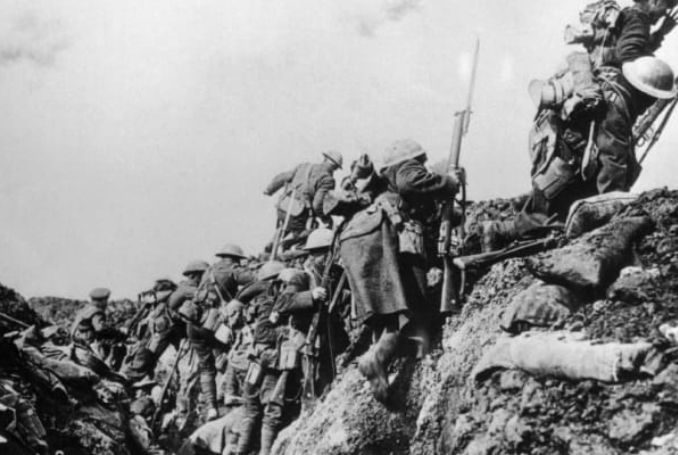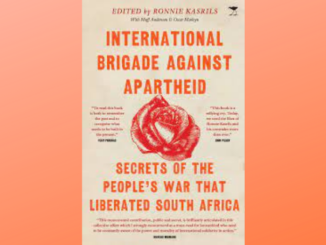
(Wealth and Power: Global Transformation and Destruction 1492 to 2020 Part 2: Transformation to Urban Industrial Capitalism and the path to Global War)
This is a history blog… Unlike any history, you have been taught. The blog will set out to explain why the world we all live in, is as it is today. Sign in here and you receive a short weekly history on colonialism, racism, and very much more.
The Unintended Consequences of the 1914/18 Wars
The period from 1914 to 1945 will be remembered across the world as a time when the global powers fought each other to a standstill. Even though these wars began over 100 years ago, each nation-state still fights these wars on its television sets, through its literature, and in its schools, and always they portray themselves as the ‘good guys’. Yet the concrete situation about what caused the wars should always be questioned as I have set out to do in the blogs I have written.
I begin with an examination of the global geopolitical context in the period of 1914-1945. Then briefly I examine the 1914/18 War itself, particularly in terms of colonization. As I show, it’s not to be forgotten that the colonization of the other people’s lands had been a primary goal of all the industrializing states over hundreds of years, and the wars must be considered in this context.
Then I discuss the global structural changes which were resulted from the 14/18 war: the rise in nationalism, racism, and anti-Semitism in Europe. These can be understood as the unintended consequences of the 14/18 war. The collapse of the Russian Empire and the revolution, the weakening of the dominance of the British empire, and the rise of the importance of the USA were also unintended and unthought off consequences.
Finally, the financial turbulence of these 20 years, left the ruling classes of all the major powers in constant distress. That is not to mention the hunger of the working peoples across Europe.
The Intended Consequences
Following the wars between 1914 and 1918, these created a series of intended consequences that began to alter the balance of power throughout the world. Initially, this began with the destruction of Germany as a world power and the Versailles Treaty as the vehicle to destroy Germany as a colonizing power.
Further intended consequences were the Invasion of the Ottoman Empire and its division into multiple states colonized by France and Britain, the creation of the “Middle East”, the new ownership of Arab oil and the beginnings of the creation of the Palestinian Question.
The first wars of this period between 1914 and 1918 had created global structural change, new colonization, heightened nationalism across Europe, new intensities of racism and anti-Semitism, a major new global treaty at Versailles in France, and the end of the Ottoman, Russian, and Austro/Hungarian Empires
The key purpose of the war between 1914-18 and the one that followed was about colonization and who was to be the dominant world power. These were issues that could not be aired in public as the populations were being asked to put their lives on the line, and to fight for their country. Nationalism closely attached to racism was to become a part of the ideology of all the nation-states fighting in the wars. It is this ideological framework that still dominates our understanding of this period.
The Second Set of Wars, from 1937 to 1945
This set of wars began in 1937 when Japan invaded China.
As in the first section of blogs of the 1914 to 1939 period, I deal with the intended and unintended consequences. First, it is necessary to understand the rise of Hitler and Nazism.
The rise of Hitler and the Nazi party is still a deep area of academic dispute. I attempt to view the events of the 1930s in Europe through the lens of Millenarianism to make sense and explain the history of that time
I portray Hitler and the Nazi movement as a Millenarian Movement. The Holocaust in Germany was part of the regeneration as in Exodus. Nazism was a Millenarian movement par excellence. It had all the elements: a new messianic leader appearing from nowhere; a prophetic revelation that would lead the people out of suffering; a fundamental transformation of society; a purifying theme which would create a single people as a whole. The entire edifice was themed in ideas that were prevalent across the expanding world of colonialism.
It was, as it turned out, the final profanity of racism as the organizing principle of the empire. Racism had been the key ideology of empire. The Nazi version was the final denouement that horrified the world. Racism did not end in 1945 but ceased to be the accepted framework of ideas perpetuated by the States of Europe and North America
The Jewish Holocaust was racism’s final horror.
The Struggle for Wealth and Power in the 20th and 21st Centuries – The Final Unintended Consequence
The key unintended consequence of this short period of global war was that the world was turned almost upside down once again. All the European States lost everything they had been fighting for since 1492. By 1945, colonization was dead, only to reappear under the dominance of the USA in new clothes. Britain and the USA met secretly in 1944, at Bretton Woods, a small village in North East USA, to divide the world and to decide how to order and control world power.
The USA was the least affected by the war and had come out of the war as the world’s creditor. She virtually instructed Britain on how to proceed.
From the end of hostilities in 1945 until the mid-1960s the entire colonial edifice that had been created over the previous 300 years was dismantled. Each colonial state in Asia and Africa appeared to be offered the freedom to rule themselves. The USA demanded that they have free access to the raw materials and the internal market of all the old colonies. The only way that could be achieved was to allow each old colonial state to be ruled by its people.
The apparent new freedoms provided the opportunity to create new societies freed from the physical boundaries created by the European colonial powers. Major geographical entities might have been pulled together to create new mighty economies. The African continent and the Arabic world were two obvious examples. Both possessed immense wealth in the form of raw materials such as minerals that included massive gold & copper mines and oil reserves.
It would have required imaginative leadership with huge strengths of purpose. The older colonial national boundaries of both areas had little logic in themselves. The continental state would have been able to own the raw material resources, create banks designed for development, and to create national funds to distribute the wealth. African and Arabic industrialization was in principle on the cards during the 15 years after 1945.
At the time, both Nkrumah and Nasser (leaders of Ghana in Africa and Egypt in the Arab world) thought in these terms of uniting their respective continents and creating the conditions for industrialization. In earlier decades, strong leaders had held both the USA and China together. The first between 1762 and 1900 and the second from 1900 to 1969. Both continents, the USA and China could have ended up as a multitude of small States; both ended up as continental economies.
Both had entirely different historical beginnings. But neither the USA nor China had to deal with a new aggressive hegemonic external power who was fighting a cold war, determined to maintain their world hegemony and that no new power blocs would arise out of the ashes of the war against Germany and Japan.
The new USA was determined to maintain global control. By dividing and conquering this meant maintaining the old, mainly small, and therefore weak previously colonial boundaries. The Nkrumah’s and Nasser’s of this time were eliminated as this and subsequent blogs show.
– Dr. Roger Van Zwanenberg is the founder and chairman of the Pluto Educational Trust; a registered charity in the UK. He is also the Managing Director of Pluto Journals, a small company publishing 21 international scholarly journals. He contributed this article to The Palestine Chronicle.







